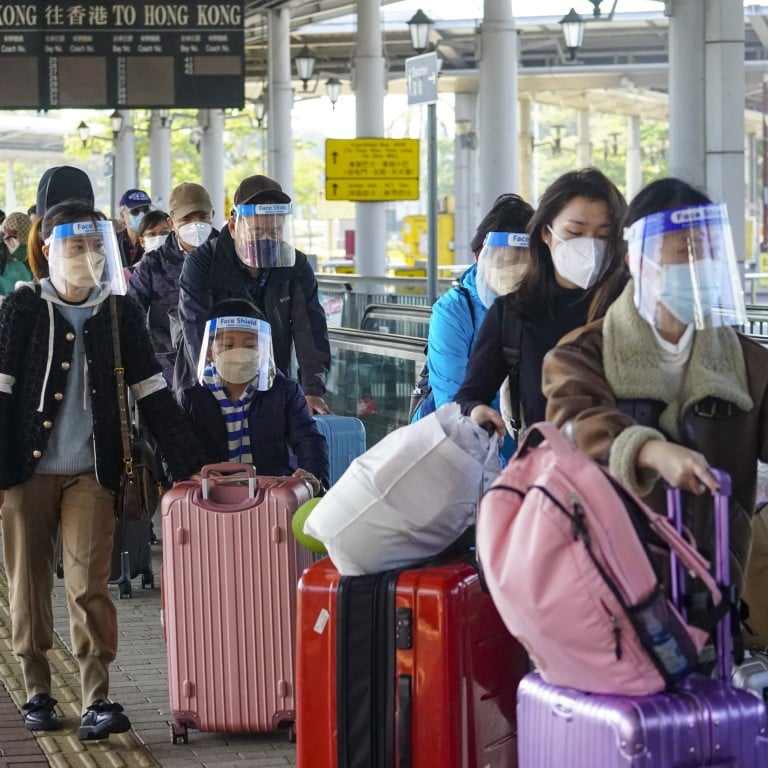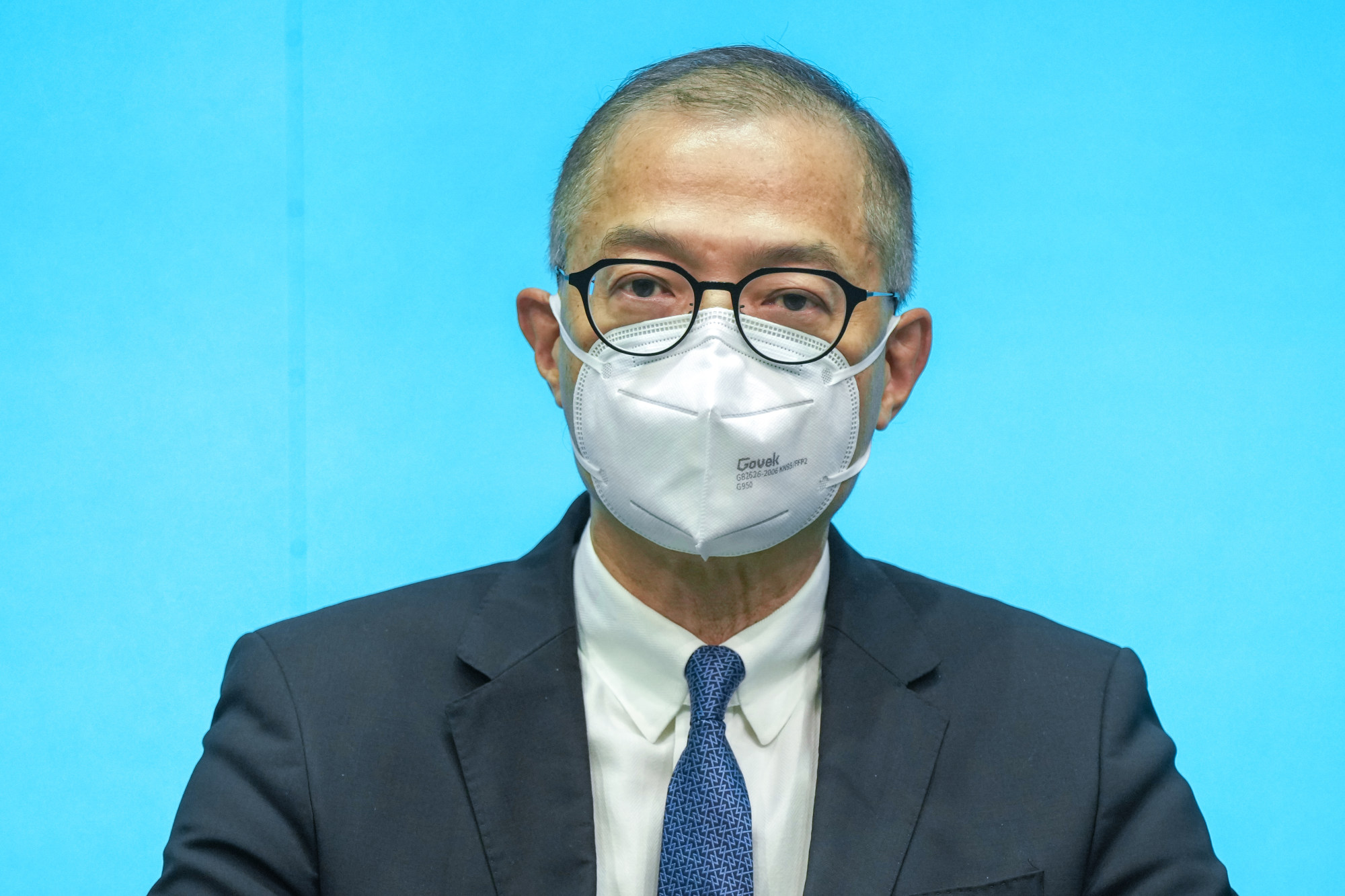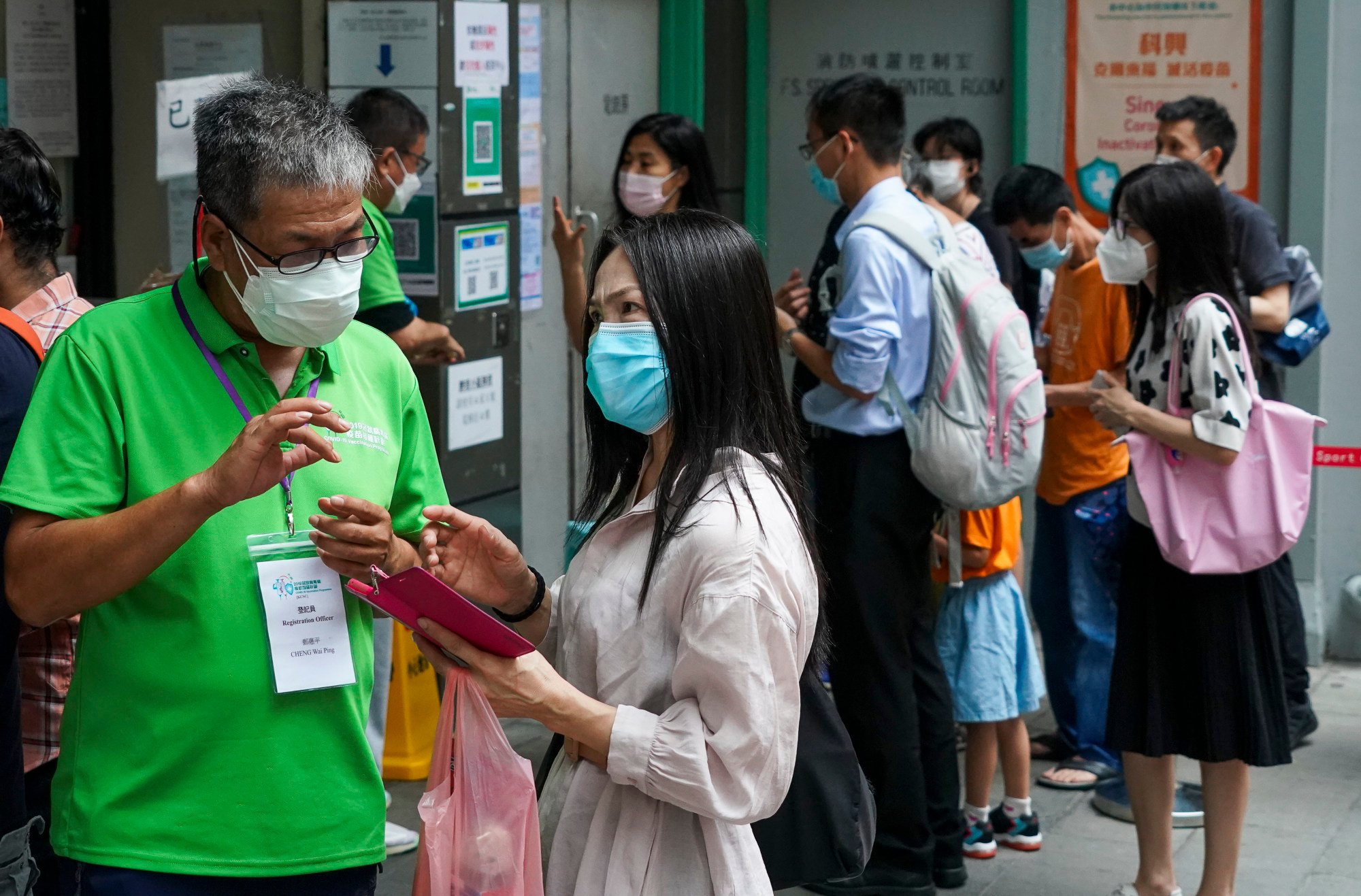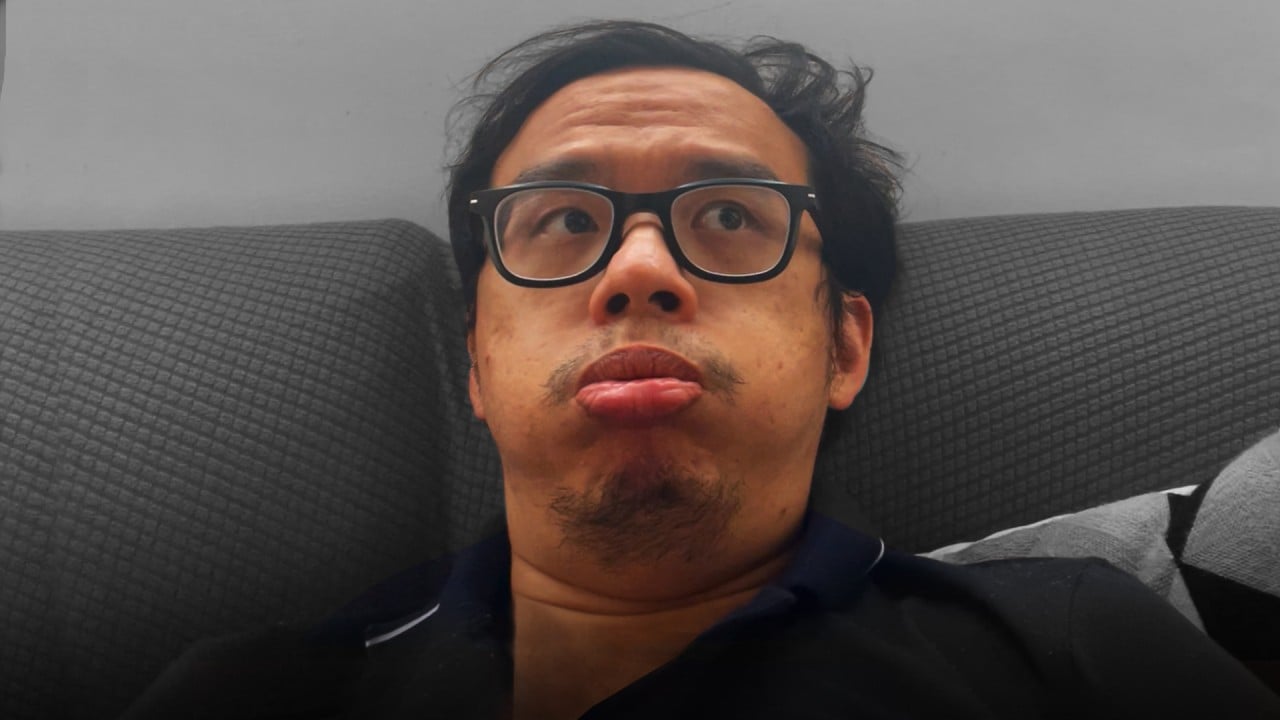
Coronavirus: families, couples divided by Hong Kong border with mainland China ‘could reunite for Chinese Valentine’s Day if cases are reduced’
- New health minister Professor Lo Chung-mau expresses hope for border reopening if Hong Kong can control epidemic, reduce number of community Covid-19 infections
- Health officials on Monday report 1,841 new coronavirus cases, 196 of which were imported, and no additional related deaths
Hong Kong’s new health minister has expressed hope that more families and couples separated by the city’s border with mainland China can be reunited next month for Chinese Valentine’s Day, provided the number of local Covid-19 infections can be reduced.
The remarks on Monday from Professor Lo Chung-mau, the city’s new secretary for health, came as an infectious disease expert revealed that Chinese pharmaceutical firm Sinopharm’s Omicron-targeted vaccine could be made available to Hongkongers in December, meaning residents could potentially have three new jabs to choose from by the end of the year if they all receive official approval.
In a blog post marking his first full working day, Lo said it was possible the border with the mainland could reopen on August 4, which is this year’s date for China’s Qixi Festival, if the city worked to contain the number of local coronavirus cases.
“Controlling Hong Kong’s epidemic and reducing community infections are the most important elements in increasing cross-border flow and border reopening,” he said, adding that cooperation between Hong Kong and Shenzhen could reunite families like the festival’s legendary lovebirds, Zhinu the weaver girl and Niulang the cowherd.
Having previously commuted across the border on a regular basis when he was chief executive of the University of Hong Kong-Shenzhen Hospital, Lo said he understood the difficulties of booking spots at official quarantine sites, with the 2,000 available units frequently filling up a minute after reservations opened at 10am.
To travel to the mainland, Hongkongers must undergo seven days of quarantine at a government-designated site and three days of home isolation.
But Lo said he also understood the difficulties faced by central authorities across the border.
“As the southern gateway of the nation, [Shenzhen] has to ensure the flow of goods and people with Hong Kong and keep the epidemic under control too,” he said, adding that Shenzhen had previously increased the number of quarantine units from the original 1,300 and also cracked down on those abusing the system for profit.
Hong Kong’s John Lee convenes cabinet meeting to discuss to-do list from Xi
Lo also said the Shenzhen authorities would further increase the number of quarantine units and crack down on scalping activities in the near future.
Despite Lo’s remarks about a possible reopening of the city’s border with the mainland, Hong Kong on Monday reported 1,841 new coronavirus cases, of which 196 were imported, and no additional related deaths.
The city’s coronavirus tally currently stands at 1,253,757 cases, with 9,405 fatalities.
Health authorities also said that 421 schools had reported 600 cases involving students and teachers over a four-day period starting from July 1.

Responding to the blog post by the health minister, respiratory medicine specialist Dr Leung Chi-chiu said the daily coronavirus tally was set to remain at about 2,000 due to the waning of vaccination-induced and natural immunity over time.
“When and how border relaxation with the mainland will occur may depend more on the level of risk our mainland colleagues are willing to take,” he added.
Earlier on Monday, Ivan Hung Fan-ngai, head of the University of Hong Kong’s infectious diseases division and lead researcher for Sinopharm’s vaccine, said clinical trials for the Omicron-targeted jab were going well.
The firm, which is working in collaboration with the university, started the penultimate phase of the vaccine trials in May.
Former Hong Kong leader calls for visitor quota at border with mainland China
“We have recruited 1,300 people and more than 600 of them have received one or two doses of the [Sinopharm] vaccine. The overall progress has been good,” he told a radio programme.
He added that the study would recruit 1,800 participants in total, with the vaccine expected to be completed by the end of August.
“We hope to release the preliminary data in mid or late September. If everything is smooth and the vaccine is safe and effective, we wish to apply for registration in November and make it available for the public in December.”
If clinical trials are successful, Sinopharm could be the third company to provide Hong Kong with an Omicron-specific vaccine by the end of the year.
Sinovac also launched clinical trials on Monday for its Omicron-targeting vaccine, working in partnership with HKU and Gleneagles Hospital, and said it planned to recruit 300 participants who were double or triple inoculated against Covid-19.
However, the company stopped short of providing a timeline of when its new jab will be ready.
Pharmaceutical firms BioNTech and the United States-based Moderna had previously said they would be able to provide their own Omicron-targeted vaccines as early as the third and fourth quarters of this year respectively if approved by authorities.
Moderna earlier told the Post that it was interested in selling 8 million doses of its new jab to the city and was in advanced discussions with the government.
The new vaccines, which will either contain the genetic code of both the Covid-19 original strain and the Omicron BA.1 variant or just the latter, will be part of the second generation of coronavirus jabs.
In Hong Kong, the first-generation Covid-19 shots, which are based on the original coronavirus strain, are supplied by BioNTech and Chinese drug maker Sinovac.
Hung said Sinopharm’s second-generation vaccine had been “very safe” with no serious side effects.
“Of course, there will be side effects, which are similar to those of Sinovac’s inactivated vaccine, including headaches, sore arms or fatigue. A small number of people may develop a fever,” he said.
“For those people who have received two or three doses of BioNTech or Sinovac, we have not seen any problems with them receiving the Sinopharm vaccine.”
Moderna’s Omicron-specific Covid-19 vaccine shows positive results
Both Sinovac and Sinopharm jabs were developed using the inactivated vaccine platform, while BioNTech and Moderna jabs use messenger RNA (mRNA) technology to generate immune cells.
According to the Department of Health, the health secretary can authorise a coronavirus jab for emergency use after taking into account advice from the government’s Advisory Panel on Covid-19 Vaccines about its safety, efficacy and quality.
As of Sunday, the number of residents who had received their first vaccine dose accounted for 92.7 per cent of the city’s population aged three or above, with those who had taken their second jab stood at 88.7 per cent.
Among residents aged over 12, 66.4 per cent had received their third vaccine dose, while 156,072 people had taken their fourth jab.

Hung also said that, while Omicron BA.2 was the dominant strain in Hong Kong, he believed the BA.4 and BA.5 subvariants could become the main types of the virus in the city, adding the public need not be concerned.
“Four million or more people have been infected with BA.2 in the fifth wave of the pandemic. Studies show that the immunity provided by BA.2 infections is strong enough to fight against BA.4 or BA.5,” he said.
“In addition to the high proportion of vaccination, a hybrid immunity and a natural immunity barrier has been created, which is very effective in preventing outbreaks of BA.4 and BA.5.”
He added that the two strains had proved to be more transmissive but their “lethality” was similar to that of influenza.
Health officials confirmed 422 cases involving the BA.4 and BA.5 subvariants, including 11 infections that were reported on Monday.


